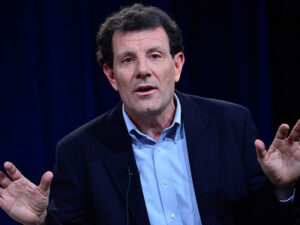For IKEA, the need to stay at the forefront of the home furnishings industry means attracting and hiring the crème de la crème of the design world, who are often millennials. A Satell Institute commissioned study brings to light why Corporate Social Responsibility (CSR) is becoming a crucial part of the furniture giant’s long-term recruitment strategy.
The young professional individuals IKEA seeks to attract want more from their employer than just a paycheck. They not only seek fulfillment from their work, but they also want to work for a company whose values match their own.
A recent study, conducted by Professor Fredrik O. Andersson of the University of Wisconsin-Milwaukee, shows how IKEA has begun using CSR to connect with the young talent the business needs through the Kamprad Family Foundation (KFF).
Established in 2012, KFF is committed to strengthening Småland, the province where IKEA began.
For IKEA, KFF local corporate philanthropy adds value in terms of human resource benefits and increased positive media coverage for the company.
From an HR standpoint, KFF’s commitment to the community is helping IKEA fill the key management and design positions it needs for its headquarters in Älmhult, a small rural town about two hours from a major city. The ability to make a positive contribution to society resonates strongly with many young professionals who are saying yes to joining a company that shares their values.
Beyond recruitment, KFF is affecting retention. KFF offers motivated IKEA employees opportunities to be engaged in community projects on entrepreneurship, the environment, health and social progress. KFF also invests in special projects and organizations, including Junior Achievement Sweden.
What IKEA is finding out is that increased engagement is resulting in employee pride and greater loyalty to the company.
CSR increases motivation and productivity
IKEA is learning that CSR activities are exposing new employees to new challenges, such as mentoring and coaching young students in finding solutions for improving the quality of life for senior citizens. These experiences are helping these new IKEA employees gain perspectives and learn valuable skills that they can bring back to their regular jobs.
CSR is benefitting IKEA’s reputation
IKEA’s investment in KFF has generated a lot of positive press in Sweden. Attention has been directed to how IKEA employees, through KFF, are creating a stronger community and region. The media has also reported on the pace by which KFF has grown, and the fact that today it is larger than many historically powerful foundations, such as the Nobel Foundation.
IKEA is already finding value including CSR as part of their recruitment strategy to help the company get the talent it needs by strengthening the community it serves.
Ingvar Kamprad, the founder of IKEA, passed away earlier this week. Ingvar was one of the greatest entrepreneurs of the 20th century and a pioneer in CSR.
Leading Thought-leader Confirms Key Satell Institute Message: CSR is in a Firm’s Self-interest

In a recent op-ed in the New York Times, journalist and two-time Pulitzer Prize winner Nicholas Kristof wrote there are “interesting signs that the business world is becoming more attuned to social impact. This isn’t because of altruism, but because of self-interest. Young people want to work for companies with values. They want to buy brands that have a good image. They want to invest in companies that are socially responsible. So, when Starbucks or Unilever or Whole Foods do the right thing, that’s good for their bottom line. And CEOs who ignore social value will end up hurting shareholder value.”
Nicholas Kristof’s comments are clearly aligned with the Satell Institute’s mission, vision and principles.
We consistently inform and prove to corporations that it is in their self-interest to support activities and initiatives that enhance the vitality of the community.
Through our Think Tank, we provide CEOs evidence about the centrality of CSR to their forward-looking business plans, from creating a halo effect on their brands to assisting in talent recruitment and retention and measurably improving firm valuation.
Through our Do Tank, we are creating and codifying long-term partnerships for the greater good between businesses and nonprofits serving their communities. These partnerships have initialized innovative CSR programs for making communities more attractive to talented young professionals, investors and businesses.
Many leading companies in the region, which see that it is in their self-interest to help foster better communities, have chosen to join our Collective Force of Businesses and Nonprofits for the Greater GoodTM. These forward-thinking companies know that the Satell Institute’s approach to CSR is good for their community and good for their business.


